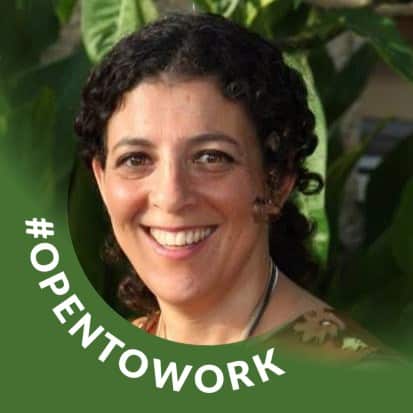Spanish Online Gambling Trade Group Resists Advertising Ban

Spain’s citizens’ rights ombudsman Fernandez Marugan recently recommended the government order a blanket ban on all gambling advertising. Now, the country’s top online gambling trade association, JDigital, has hit back with accusations he has no true understanding of Spain’s existing gambling advertising regulations.
Marugan recommended the government consider a total ban of betting advertising in the media, radio, internet and TV. He said if the government doesn’t want a blanket ban, it should at least consider extending the times where gambling advertising is forbidden. Notably, Marugan suggested the rules should exempt the two state run lotteries.
One of the major issues that JDigital has with Marugan’s recommendations is the fact that many of the things he called for have already been addressed by the government through regulations that have been in place for quite some time governing gambling in Spain.
JDigital Against Ombudsman’s Suggestions
This from the president of JDigital and an executive of Sportium, López de Torre, as quoted in iGamingBusiness:
“We were very surprised by the note from the Ombudsman for a number of reasons. It shows he does not know how the gambling regulatory framework operates in Spain. It also suggests he is unaware of the fact that problem gambling is already covered by the National Plan on Drugs’ epidemic studies. This actually shows that problem gambling prevalence in Spain is among the lowest in the world at 0.3%.
“The Ombudsman literally asks for a reference to online gambling in the advertising decree – which specifically regulates online gambling advertising. He also demands a study on problem gambling prevalence, which, as mentioned, was published last year.”
De Torre also pointed out that excluding the state lotteries from the ban would breach European Commission laws.
No Problem Gambling Epidemic
JDigital and other entities have slammed the ombudsman for what they say is “unjustified social alarm” for exaggerating problem gambling numbers in Spain.
De Torre added the Spanish gambling industry has always been in favor of measures that could help protect vulnerable groups. He praised the Spanish gambling regulator, Ordenacion Juego, for having some of the best and most effective wagering rules in the world protecting children and addicts.
“We work to make sure Spanish consumers can enjoy gambling as part of their entertainment options in a safe, regulated, and productive manner,” he said. “Irrespective of whether the offering is provided by public, private, or semiprivate operators.”
Last year, another gaming trade group, CeJuego also hit back at the government’s claims that Spain has “serious addiction problems.”
Ombudsman Reports on Public Complaints
However, the ombudsman seems to be humming a different tune. According to Marugan, his call for a blanket ban on gambling advertising comes from a string of complaints from members of the public.
In a statement issued by Marugan’s office last week, the Spanish Congress member said the complaints were received from citizens for the continuous publicity of bookmakers’ ads on television and online media.
He called for “active policies of responsible gambling aimed at strengthening the protection of the most vulnerable to addiction.”
Marugan is a long-serving member of the Spanish Socialist Workers’ Party (PSOE). The government is not obliged to carry out his recommendations, but it should respond within a reasonable time. It has been shown that 75% of the ombudsman’s recommendations have been accepted by the government in the past.
Total Ban Creates Illegal Gambling Proliferation
JDigital is not against gambling advertisement regulation per se. The group believes that it is inevitable that some type regulatory reform will come about, but totally rejects the idea of a total ban.
In his objection to the ombudsman’s recommendations, de Torre pointed out the case of Italy, which recently started the implementation of a complete gambling advertising ban. Italy plans to ban all kinds of traditional advertising, as well as competitions with branded products as prizes and influencer marketing. A prohibition on sports sponsorship comes into force next month.
JDigital’s De Torre argues advertising bans go against the interests of vulnerable groups since they create the perfect environment for the proliferation of illegal offshore gambling sites.
Largest Political Party Pledges Gambling Restrictions
The ombudsman’s statement regarding the need to place tighter restrictions on an already regulated gambling industry was not the first time that the idea has been addressed.
When introducing its budget for this year, the PSOE outlined plans to mirror the tobacco industry’s restrictions and apply them to the gambling industry. In 2005, the country prohibited the sponsorship of tobacco products and rolled out several restrictions relating to advertising and media promotion.
When the budget was rejected, Spain scheduled a snap election. The PSOE then decided to add its objections to the gambling industry in its manifesto. Today, the PSOE remains the biggest party on the Spanish political scene, although it has been unsuccessful in acquiring the 176 seats it needs to create a government. Negotiations are ongoing between PSOE and smaller parties in the hope of forming a coalition.
Spanish Online Gambling Regulation in a Nutshell
In 2008, the Spanish government passed its first major gambling bill, dividing the country into 17 regions. Each region was given the right to issue licenses to land casinos. This led to online bookmakers such as William Hill and Bwin partnering with local casinos to open the first legal and regulated sports betting shops.
Changes came again in 2011, when the Spanish government opened its gates to foreign companies who were allowed to offer their games and services to Spanish players. These companies operated with licenses issued by the Spanish regulator.
Spain has one of the highest tax rates in the world – 25% on all gambling revenue.
Betting sites serving Spanish players need to operate on an .es domain. This also indicates that the operator is licensed.
Spain’s online gambling laws allow a wide range of gaming options, including online poker, casino games, sports betting, and more.

Renee is an international analyst and journalist specializing in covering legal developments and legislative efforts in regulated online betting markets world wide.




